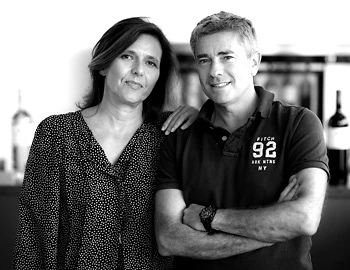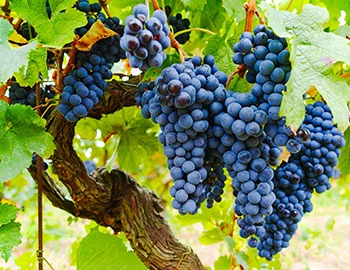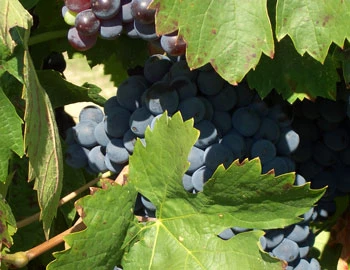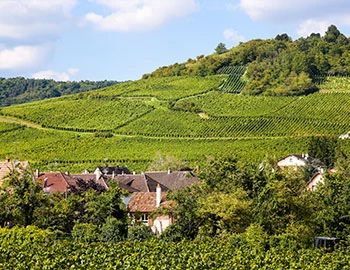Le Grand Huit Rosé 2022
AOC Côtes de Provence, Château Les Valentines, 750 ml

| Grape variety: | Cinsault, Mourvèdre |
| Producer: | Château Les Valentines |
| Origin: | France / Provence / Côtes de Provence |
| Other vintages: |
Description
Provence-Bijou, created from the 8 best plots of the estate! This wine combines precision, minerality and enthusiasm for the region's two main grape varieties. The scent of Provence with dried herbs, citrus zest and nectarines as well as the slightly smoky impression of flint set the mood for the palate experience of this cuvée. A full-bodied melting sensation spreads across the palate, followed by maritime salinity, juicy, balanced acidity and noticeable tannins. Mourvèdre provides warm and spicy finesse and Cinsault lightness, elegance and fruity flavours. Tip: For maximum enjoyment, aerate Le Grand Huit some time before serving! This vintage was awarded 91 points by Wine Enthusiast.
Attributes
| Origin: | France / Provence / Côtes de Provence |
| Grape variety: | Cinsault, Mourvèdre |
| Label: | Certified organic or biodynamic wine |
| Ripening potential: | 2 to 4 years |
| Drinking temperature: | 10 to 12 °C |
| Food Pairing: | Mild Asian dishes, Grilled fish, Succulent chicken breast with cream sauc, Vitello tonnato, Mussels au gratin |
| Vinification: | fermentation at low temperatures |
| Volume: | 13.5 % |
| Note: | Contains sulphites |
Château Les Valentines
Not far from the picturesque towns of Nice and Saint-Tropez, the owners of Château Les Valentines, Gilles and Pascale Pons, produce wines that reflect the summery lightness and intense sensuality of the beautiful Provence countryside.
Ever since the two owners turned their backs on the IT industry in Paris in 1997, they have dedicated their hearts and souls to the wines of Château Les Valentines. The estate is more than a century old and was recently extended by a modern building. The château and one of its wines are named after the two children Valentin and Clémentine. The former owners were so-called grape growers who sold their grapes to the local cooperative for further processing.

Mourvèdre
Hot-blooded Spaniard
It cannot be hot enough for the Monastrell grape. It grows around the Mediterranean, where the summers are long and hot and the winters mild. At only 200 metres in elevation, or 80 kilometres from the coast, its grapes have problems ripening. It was likely born in the Valencia region. According to written records, it was already counted among the most important varieties in 1460. Its exact origin is thought to be the Camp de Morvedre area. From there, it migrated in the 17th century to Provence, where it was christened Mourvèdre. Its wines are deeply dark, with intense blackberry aromas, rich tannins and moderate acidity. They enter into the most beautiful harmonies with other varieties from the south, such as Garnacha, Carignan or Syrah. The Mourvèdre is the main ingredient of red wines of Bandol; it also flows into the Châteauneuf-du-Pape. On the Spanish Levante coast, it is also pressed solo.

Cinsault
Sun in a glass
The southern French Cinsault, also written Cinsaut, is a curiosity among the grape varieties. It belongs to the so-called “dyer grapes”. These are red grapes in which the pigments sit not only in the skins but also in the flesh. That means, when the Cinsault is pressed, pink juice results, rather than the white you see from other grapes. Previously, the Cinsault was used to spice up lighter-coloured Burgundy. But now it has become emancipated. With a soft, fruity style, seductive raspberry and strawberry aromas and good aging potential, it mixes with the most renowned growths from the southern Rhône, around the Châteauneuf-du-Pape. Solo, it yields wonderfully aromatic rosés.

France
France – Philosophy in a bottle
According to French philosophy, wine should be an expression of the soil and climate. They use the word “terroir” to describe this. Terroir makes every wine different, and many especially good. French wine is regarded worldwide as an expression of cultural perfection. The French believe that humans are responsible for the quality of the berries, the vine variety for their character, and nature for the quantity. This philosophy can be expressed succinctly as: “the truth is the vineyard, not the man.”



